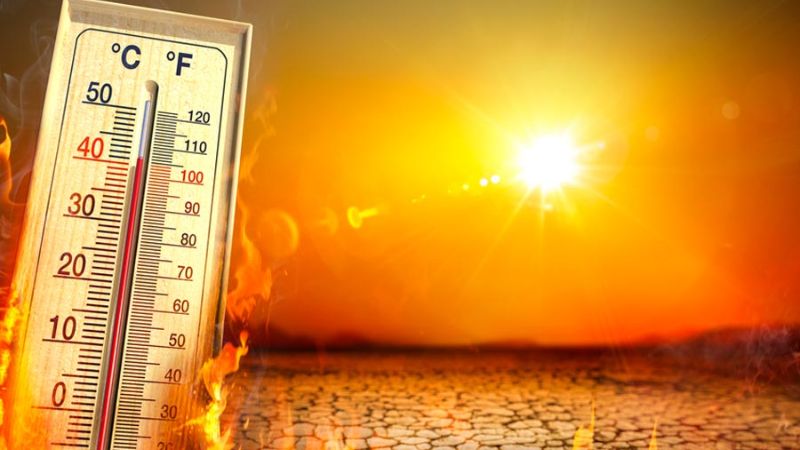Punjab has seen an increase in temperature over the past few days. The District Health department for Chandigarh has issued a heatwave advisory. On Sunday, the maximum temperature in Chandigarh rocketed to a scorching 40°C while the minimum temperature was recorded at 22.2°C. According to the India Meteorological Department, the temperature is expected to continue rising in the upcoming days.
Keeping the temperatures of April and June in mind, the weather department says that temperature is expected to rise further in the coming days. A heat wave is also expected. Through the advisory, people have been asked to be cautious. Although anyone can be affected by heat wave in summer season, children, elderly and pregnant women are said to be more prone to risk.
The temperature in Punjab over the next few days:
- There is a possibility of partly cloudy skies on Monday. The maximum temperature in the state is expected to be 39 degrees while the minimum to be 23 degrees.
- Tuesday may be partly cloudy. Maximum temperature is expected to be 40 degrees and minimum to be 24 degrees.
- Wednesday may also be cloudy. The maximum temperature is expected to be 39 degrees, while the minimum temperature to be 24 degrees.
As per the advisory, here are some tips to beat the heat this summer:
- Avoid direct exposure to heat.
- Stay in a ventilated and cool place or indoors as much as possible.
- Wear light-colored and loose-fitting cotton clothes.
- Use an umbrella, hat and sunglasses to avoid direct sunlight.
- Stay hydrated regularly.
- Keep windows and curtains closed during the day.
- Drink plenty of fluids, including water, juice and coconut water.
- Avoid alcohol and caffeinated drinks as well as sugary drinks.
- Include fruits and vegetables that are high in water content in the diet.
- Keep a close eye on children, the elderly, outdoor workers and people with pre-existing health conditions.
- Do not leave children or pets locked in a parked vehicle.
- Limit outdoor activities to cooler hours of the day.
- Avoid strenuous physical activity during hours of extreme heat.
